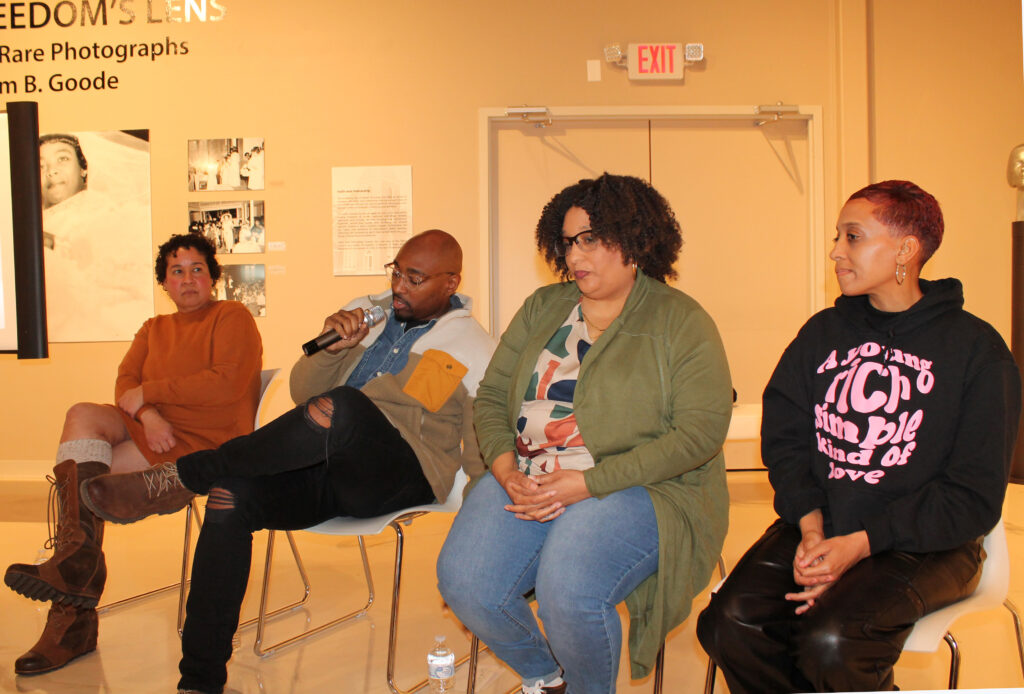The documentary “Silenced Voices” received an enthusiastic reception from the crowd that attended a screening of the film on Martin Luther King Jr. Day at the Fine Arts Museum of Gloucester. “Silenced Voices” is an examination of the interaction between the descendants of enslaved people and their enslavers during a week-long workshop held at Pharsalia Plantation (ca. 1814-1815) in Nelson County, Virginia. It also shares participants’ personal thoughts on visiting the place where their ancestors lived as enslaved people. Jobie Hill, founder of the nonprofit organization Saving Slave Houses, and Frederick Murphy, founder of the nonprofit History Before Us, created and co-directed the film and were at Monday’s screening. The event was sponsored by the museum, the Fairfield Foundation, and the Fairfield Family Circle, a volunteer-led group of descendants of people of Gloucester who were either enslaved or enslavers at three historical plantations in the county—Rosewell, Fairfield and Timb...
To view the rest of this article, you must log in. If you do not have an account with us, please subscribe here.


